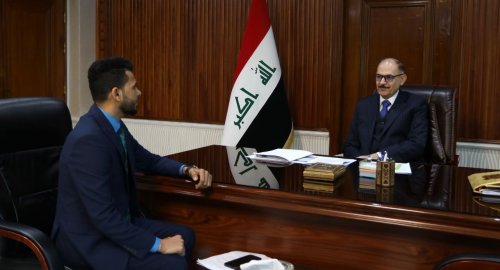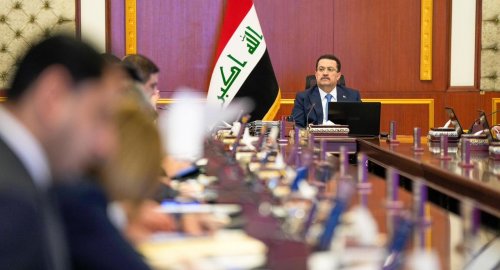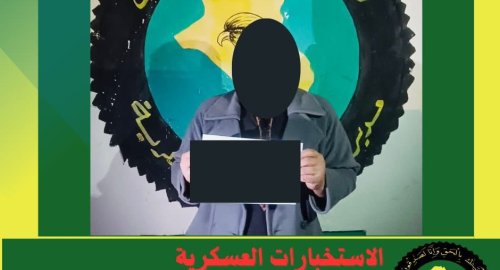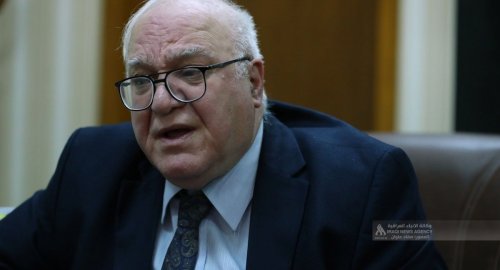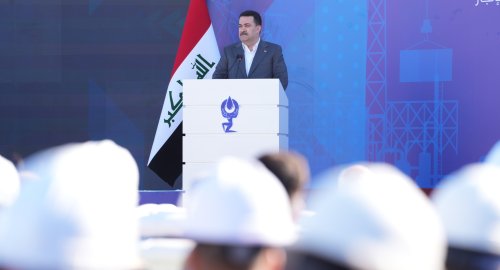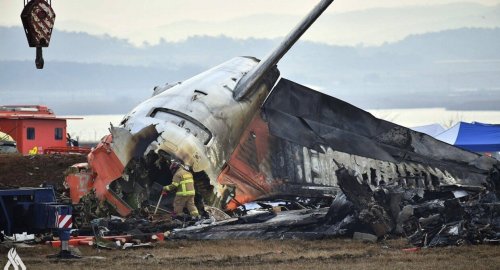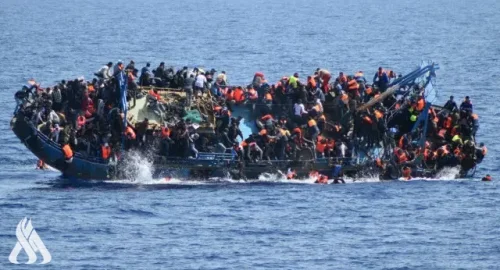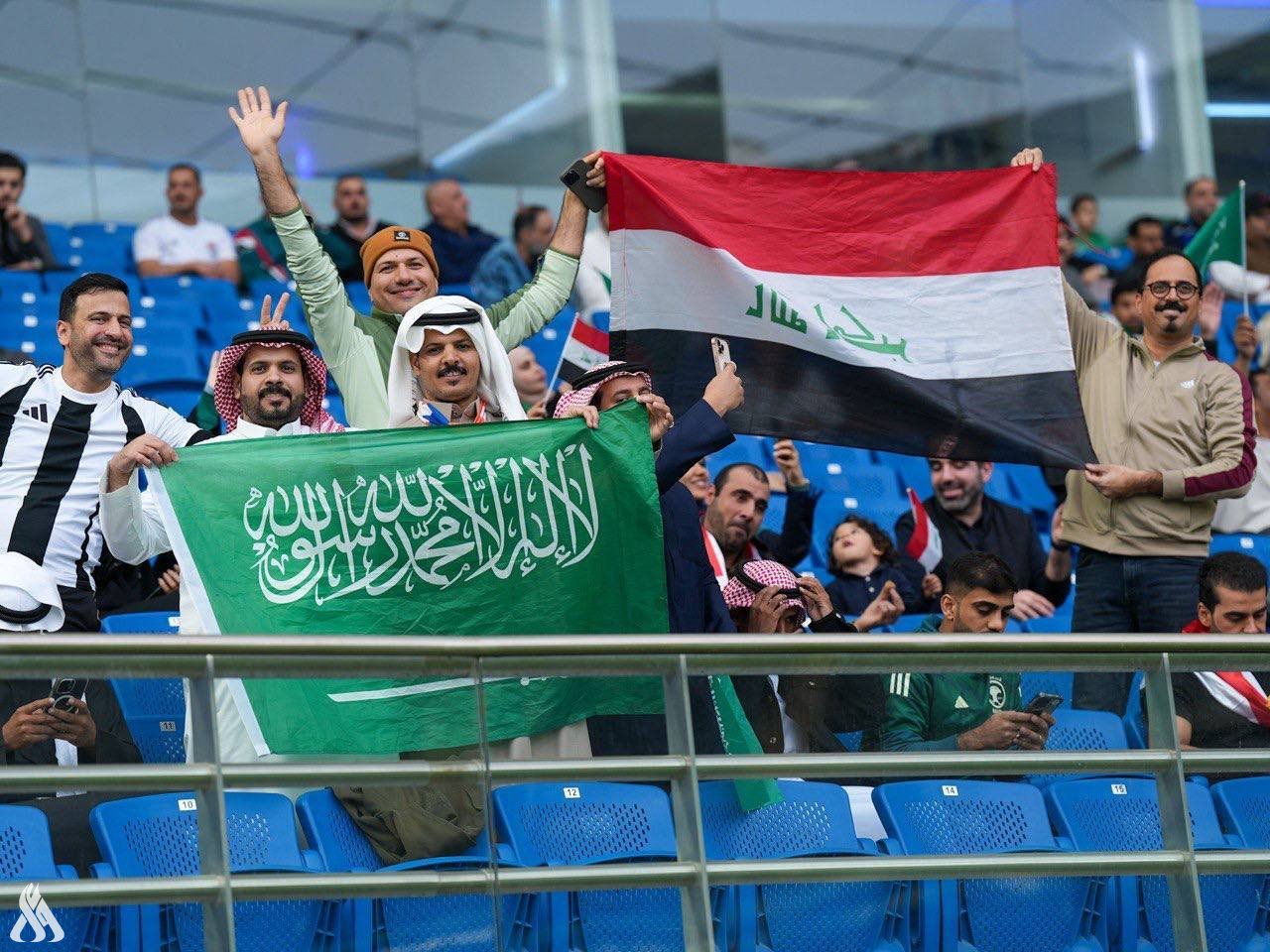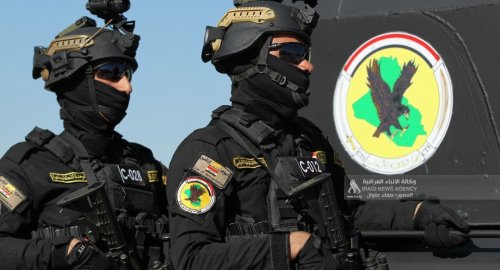
CTS .. The striking hand of the armed forces in the liberation battles

- 13-06-2024, 22:02
Baghdad - INA
With the anniversary of the Fatwa of Al-Jihad issued by the Supreme Authority ten years ago, and returning to the battles, the Counter-Terrorism Service fought heroic battles with the rest of the security forces, some of which were in the lead, and they still receive praise from those concerned with the security file, starting with the battles to liberate Ramadi and all the way to the battle to liberate Mosul.
The spokesman for the Counter-Terrorism Service, Sabah al-Numan, told the Iraqi News Agency (INA): “Since the beginning of the formation of the agency in official history in the year 2007, the leadership of the agency has been primarily keen on psychologically building the fighter in the Counter-Terrorism Service as a result of the nature of the missions and the type of tasks carried out by this apparatus in the concept of special operations has its own uniqueness and distinction in fighting terrorist organizations and the type of enemy that targets the psychological and training apparatus of armament and its technical techniques,” pointing out that “the apparatus was able to carry out very large tasks in combating terrorist organizations and had great access, through which it was able From defeating ISIS gangs, especially after 2014.”
He explained, "The device was distinguished by the fact that it was the tip of the spear in all liberation operations from the beginning of the operations to liberate Ramadi and ending with the liberation of Mosul and the Great Epic. The device had a very large imprint in that epic through its uniqueness on the left and right sides of Mosul in liberating residential areas, and this matter was a very big challenge." “The apparatus’s sectors have the opportunity to liberate these areas and expel ISIS gangs with the presence of residents in those residential neighborhoods.”
He continued, "The combat doctrine possessed by the agency had a major role in the agency relying on liberation operations on central operations, as well as the operations carried out by the small units of the agency by giving space for planning and tactics to the small units at the level of companies, where the fighters were able to adapt and remain larger." A possible period away from the central command, and they have become proficient in all the logistical capabilities that enable them to remain for a long period without being linked to logistical and administrative support,” indicating that “coordination was very high between the sectors of the apparatus within the sector of responsibility and between the other sectors and other security agencies from the defense, the federal police, and the heroes of the Popular Mobilization Forces.”
Al-Numan pointed out that “the plan was comprehensive and central, prepared by the Joint Operations Command, and tasks were divided between the joint security sectors according to sectors of responsibility, and the implementation of plans for each sector and each security apparatus began, but comprehensive and high coordination remained, which enabled the sectors to absorb the capabilities of the terrorism gangs , paralyzing its movement, thwarting any enemy maneuver, and moving from one area to another, because when the Counter-Terrorism Service is in a sector of responsibility, there is another section of responsibility for the Popular Mobilization Forces, and it is carrying out liberation operations at the same level and pace as the Counter-Terrorism Service is advancing, and also in another sector is the Federal Police in this work. This is coordination in the processes of liberation and progress.”
Security and strategic expert Fadel Abu Ragheef told the Iraqi News Agency (INA): “The Counter-Terrorism Service took the lead early in the global ranking of counter-terrorism agencies among countries of the world and the region,” noting that “the Service had a major role in the liberation operations and defeating ISIS terrorism.” .
He added, "The agency succeeded in developing plans, especially the liberation of Nineveh, and the axes it occupied were the most dangerous and difficult axes in which the terrorist organization was present. The Counter-Terrorism Service succeeded in proving itself as a global agency after defeating terrorism in its axes.".
PM: Our goal is to stop gas flaring at zero percent by 2028
- politics
- 04:02
South Korean cops raid offices of Jeju Air as crash probe intensifies
- International
- 02:10
Suspected people smugglers to face severe curbs under new UK laws
- International
- 02:00
Iraq vs Saudi Arabia match kicks off, Arabian Gulf Cup 26
- Sport
- 24/12/28
Real Madrid becomes Arnold's new home
- Sport
- 24/12/28
Globe Soccer Awards 2024: all the nominees
- Sport
- 24/12/27
CBI: We have achieved a great achievement in abroad remittance
- Economy
- 25/01/01

